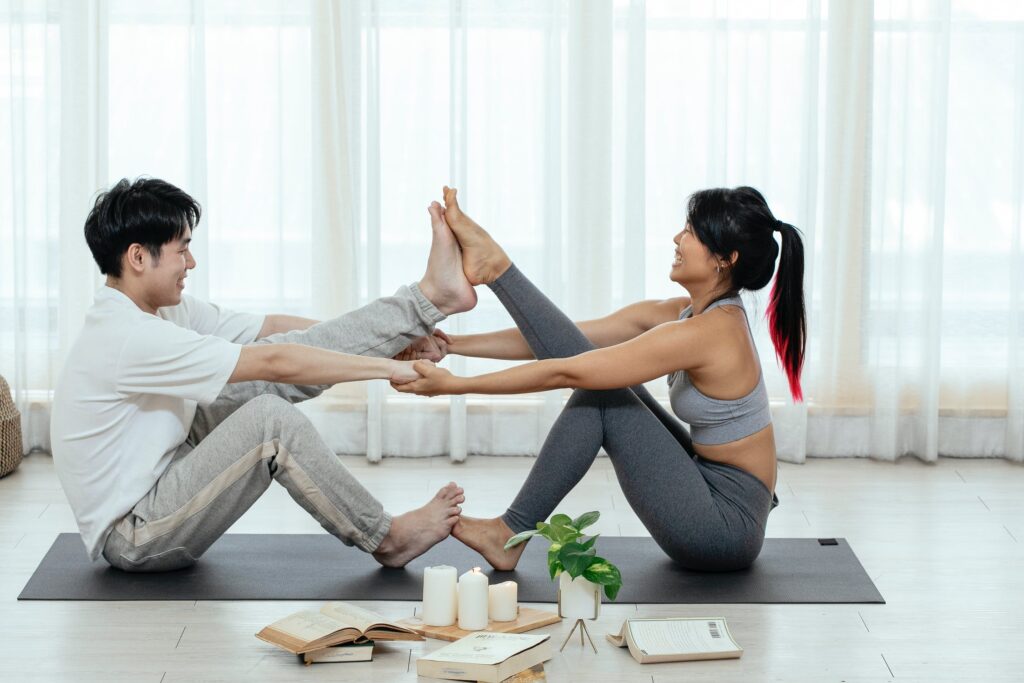By SWNS Staff
NEWS COPY w/ VIDEO + INFOGRAPHIC
Half of Americans find no joy in physical exercise, according to new research.
A new poll of 2,000 Americans who frequently exercise sought to find the best and worst parts of exercising and found 50% don’t work out as much as they’d like because they just don’t enjoy it.
In fact, they hate it so much that 25% would be willing to text their ex and even cancel Netflix for a year to get out of working out for the rest of their lives.
Three in 10 respondents would even reconnect with their high school bully if it meant never picking up weights again, and 33% would spend a long weekend with the in-laws.
Additionally, 34% said they’d be willing to hand wash all their dishes for the rest of their lives to avoid breaking a sweat ever again.
Why are people so keen to throw in the towel for the rest of their days? Forty-three percent of respondents said they just get so bored during their workouts, that they’d rather not do them at all.
Conducted by OnePoll on behalf of AI-based fitness and lifestyle coaching app Freeletics, the survey also found that 54% of respondents mentally check out of their workouts because they’re so bored – and 18% said their body is even on autopilot during their routines.
When asked why they don’t enjoy working out, 38% said it’s because they do the same routines over and over again and 28% said they also don’t know how to find new exercises or routines so they can mix it up.
Three in 10 also seem to play it safe with these boring routines because they worry about injuring themselves, and 27% worry about using improper form.
The top hurdles to working out included lack of time and a lack of motivation, both at 43%, followed by a lack of space to effectively do at-home workouts (37%).
When it comes to exercising at home, respondents struggled most to do strength training (51%) and cardio (45%). Another 36% of those polled said they even have a hard time doing yoga and Pilates (34%) at home.
“Over the past year and a half, it has become increasingly clear that workout enjoyment - especially at home - is at an all-time low,” says Dr. Kianoush Missaghi, Senior Training Experience Manager at Freeletics. “People love the results, but getting there couldn’t be more mundane and time-consuming. Our current routines are demotivating and, simply put, are not setting us up for long-term success.”
Three in five respondents said they’re desperate to get back the spark they once had when it came to working out and to solve this, 73% said they’d likely find it more enjoyable if their routines felt like playing a game.
And if they felt like they were competing with their friends while hitting the gym, 68% said their workouts would be more successful.
If respondents worked out more frequently, 63% believe they’d have more energy, 56% believe their attitude would improve and 46% even believe they’d have a better sex life.
“Even though the physical and mental benefits of regular exercise are huge, it is clear that fitness is seen by many as the ultimate chore and the industry has done little to change this in the last few decades. It’s a huge challenge and one that we are trying to solve,” says Daniel Sobhani, CEO of Freeletics. “We decided to re-think fitness and, with our brand-new product “STÆDIUM,” we aim to destroy the boring parts of working out and introduce a whole new category of fitness: strength gaming. By doing so, we aim to help people build a lasting fitness routine that they’ll look forward to every week.”
TOP 5 THINGS AMERICANS WOULD DO IF THEY DIDN’T HAVE TO WORK OUT EVER AGAIN
- Hand wash all of your dishes for the rest of your life (34%)
- Stay with the in-laws for a long weekend (33%)
- Reconnect with a high school bully (29%)
- Text an ex (25%)
- Cancel Netflix for a year (25%)
TOP 5 THINGS AMERICANS WOULD HAVE IF THEY WORKED OUT MORE FREQUENTLY
- More energy (63%)
- More positive attitude (56%)
- Better sex life (46%)
- Increased job performance (40%)
- More willing to try new things (37%)
